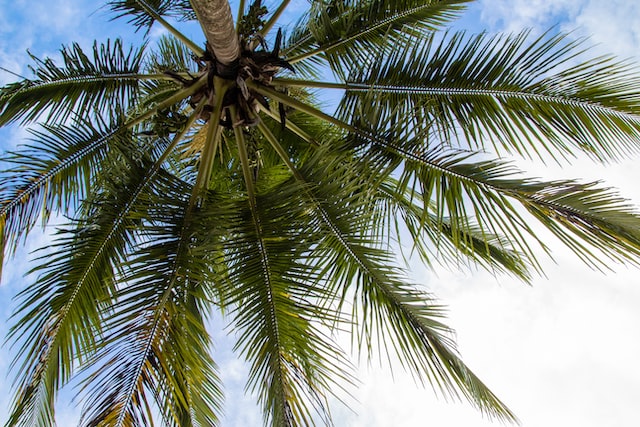Report calls for health and disability system to take coordinated, whānau centred approach to violence
Tue 13 Jun 2023
The new report makes recommendations for primary and community health, as well as the current Ministry of Health Violence Intervention Programme (VIP) and the health and disability system as a whole.

Report on health and disability system approach to violence
He Kaupapa Waka (2022) is the final report of the Māori Expert Advisory Group Report (MEAG) to the Ministry of Health (MOH). The report outlines 10 recommendations to support a holistic, coordinated and whānau centred approach to violence within the health and disability system.
The MEAG was established in 2020 by the Ministry of Health to explore a primary care response to family violence, sexual violence and child abuse and neglect (referred to as FVSV in the report). The MEAG was tasked to advise on training for primary health care and community providers related to screening or routine enquiry for violence. This involved considering whether the Ministry of Health's Violence Intervention Programme (VIP) could be transferred to the primary care and community setting.
The MEAG considered the wider context of violence in communities, in particular for Māori and Pasefika whānau. They write that:
"Although we have kept on task, we note that creating more silos – for example just looking at one part of the health care continuum – is not the right approach. Instead, we see a greater focus on primary health care as essential but requiring wider system level changes and supports."
They highlighted that their main observation is:
"...that primary and community health care have the potential to be powerful sites of FVSV response and intervention, including being able to take a whole-of-whānau approach. But this will require a more coordinated approach to training that is bespoke to primary and community health care. It is also important that Māori models of wellbeing and Kaupapa Māori providers are a central part of this response."
They identified a lack of standardised, holistic or unified approach to screening for FVSV in primary care and they "...found no Māori or Indigenous frameworks used within FVSV training resourced by the Ministry of Health."
Their report explores the current environment, reflecting and drawing on Te Tiriti obligations that have been highlighted in the Waitangi Tribunal’s 2019 Hauora report from the kaupapa inquiry into health services and outcomes, the Mana Wāhine Kaupapa Inquiry, the Health and Disability System Review, Māori children in care and issues around Oranga Tamariki, and the 6th Report of the Family Violence Death Review Committee.
The MEAG held 25 hui with a focus on the voices of Māori, Pasefika and disability groups. The MEAG also attended VIP district health board trainings, consulted with stakeholders, reviewed existing literature and conducted an environmental scan of institutional racism in relation to the health and disability sector.
A number of themes surfaced across their hui and from their in-depth review. The report discusses themes by sharing the insights from the people they spoke to in their hui. The themes covered a wide range including:
- underfunding and under-resourcing for community providers
- each community is unique in their needs, challenges and strengths and universal systems from the former district health boards won’t fit for communities; yet "Bureaucratic processes, and unnecessary central government control, reinforce these one-size-fits-all approaches"
- response should take a life course approach, not limited to single a point in time, and be whānau-centred, taking into account victims, perpetrators the wider whānau involved
- the wider health and disability system is not good at supporting holistic, hauora focused approaches
- tāngata whaikaha Māori and disabled people are marginalised and excluded in the current systems
- providers must work in respectful ways that acknowledge "...there is a history of institutions wielding power and causing harm in the name of ‘protection’"
- historical and current institutional and systemic racism means people feel unsafe to disclose or talk about violence and abuse
- despite Māori and Pasefika providers innovation and expertise in developing culturally safe systems and approaches to victims, providers cultural knowledge is not recognised as expertise and not compensated on par with other specialists
- a common solution was proposed to fund providers to design their own training programmes centred on the needs of their communities
These themes have relevance to not only primary care, but the wider health and disability sector and the VIP currently. For example and most notably:
"The most revealing insight expressed by those we met with throughout our hui is the fundamental and real fear that many wāhine Māori have in accessing DHB health services. The fear is rooted in the belief they will lose their tamariki through the reporting process to Oranga Tamariki.
The fears shared with us reflect an erosion of trust and confidence in the health and disability system by those at the margins of the margins. Our concern is that this prevents people, especially wāhine Māori, accessing health care when they need it. This finding has implications both for the existing VIP training and implementation and any expansion into primary health care."
These findings reflect similar observations from a 2019 Violence Intervention Project Evaluation, undertaken by AUT’s Centre for Interdisciplinary Trauma Research. The evaluation found that:
"Low IPV disclosure rates suggest Māori wāhine do not feel safe in asking for help within VIP services and only do so when all other options are exhausted, compounding their entrapment. […] Compassionate, empathetic and restorative intervention is critical in engaging with Māori whānau. Urgent work is needed to understand the experience of VIP intervention and the contexts in which it is received within to develop services responsive to the realities of living with violence as Māori."
Overall, the MEAG identified 8 key findings (see page 32 of the original report, page 21 of the report released in November 2022):
- "One size does not fit all"
- "The VIP training implemented across DHBs, is not adequately connected to a model of care"
- "There are too many barriers for Māori accessing high quality FVSV supports"
- "Racism, colonisation, and patriarchy play a detrimental role in FVSV, which harms everyone"
- "Health holds a unique place in the prevention continuum"
- "The VIP training is viewed negatively by some because it is seen as merely a step to unlock reporting to Oranga Tamariki"
- "Interpretations of privacy and information sharing rules, risk running counter to human rights and ethical standards"
- "Primary health care is the right setting for early intervention"
The MEAG makes 10 recommendations, listed below in brief. However, the executive summary of the report expands on these in fuller detail.
"1. The Ministry development of a position statement/paper and guidance across family violence, sexual violence, child abuse and neglect, so whānau and families benefit from a truly responsive and holistic health and disability system."
"2. The Ministry works with the Health Quality and Safety Commission on enabling the voice of consumers in the design, development and delivery of models of care."
"3. The Ministry takes immediate steps to address the underfunding of Māori and Pasefika primary health organisations and providers and community NGOs."
"4. Funding be accessed through the Māori Provider Development Scheme or Te Ao Auahatanga Hauora Māori fund1, to enable the immediate development of FVSV training by Māori providers, towards best practice screening interventions to support whānau."
"5. Funding be accessed through the Pasefika Provider Development Scheme to adequately fund for Pasefika providers and other community groups working to address the trauma of FVSV. This funding needs to be targeted to the development of FVSV training towards best practice interventions to support whānau."
"6. The structure, content and delivery of the VIP training be changed to ensure Te Tiriti o Waitangi partnership arrangements are reflected from governance through to management and implementation."
"7. Going forward, in the new health and disability system structure, the VIP training delivered inside hospitals needs to be in direct partnership with local Māori communities."
"8. The content of the VIP training inside hospitals needs to be updated, to include:
• the development of historical trauma informed models of care that include Te Ao Māori and Pasefika perspectives
• moving away from ‘screening to report’ incidences to best practice interventions to support whānau once FVSV has been identified through screening, enabling pathways to recovery for whānau and families."
"9a. Fund Primary health care and community service provider-based training prototypes for family violence, sexual violence, child abuse and neglect (FVSV), ‘screening to support’ training programmes that are designed, developed, and implemented by:
i. Māori health providers, through Kaupapa Māori training for best practice interventions to support whānau once FVSV has been identified through ‘routine inquiry’ or screening, that works for their communities.
ii. Pasefika providers to ensure the protection and validation of Pasefika knowledge.
iii. Providers who work with people with lived experience of disability
iv. Community groups (e.g., those working with new migrant and refugee populations, LGBTQI+ groups, and those working directly with people living at the margins of the margins)."
"9b. This work should be completed within the next two years."
"10a. MEAG to provide oversight of the Kaupapa Māori FVSV training programme development."
"10b. Ensure appropriate oversight of Pasefika and other community-based programmes to ensure the protection and validation of Pasefika and other relevant knowledge. In the interim this support could be provided by the MEAG but more culturally concordant solutions will need to be provided for the longer term."
The report launched in June 2022 by CARE (Center for Culture-Centered Approach to Research and Evaluation). The MEAG note that given the time of publication of the report and the restructuring of the health system, "...where we refer to the Ministry, we encourage readers to consider that the recommendation may, in time, be best carried out by the Māori Health Authority or Health New Zealand."
Hosted by CARE Director Professor Mohan Dutta, members of MEAG, Caroline (Kararaina) Herewini and Te Awhimate Nancy Tait, spoke about the report in a video recording of the report launch.
Related reports
Other reports have also identified the failure of the public sector to provide whānau centred care and support, as well as the ways in which agency responses facilitate entrapment of victims.
The Family Violence Death Review Committee’s 8th report, An ongoing duty to care | He tauwhiro haere te mahi (2023), found that "the actions (or lack of action) of agencies and institutions serve to enhance inequities, rather than providing a context for healing and recovery.”
The Auditor-General’s report, How well public organisations are supporting Whānau Ora and whānau-centred approaches (2023), also found that more generally public organisations were not working in ways that supported whānau.
The Family Violence Death Review Committee’s 7th report | Pūrongo tuawhitu: A duty to care | Me manaaki te tangata (2022), looked at how government agencies have shifted from the ‘caring pathway’ for people who have experienced violence. The report calls for organisations and providers to take a duty to care based on whakapapa, whanaungatanga and manaakitanga to support whānau and families to prevent violence, prevent the escalation of violence and facilitate healing.
Professor Denise Wilson looked at the processes and strategies that Māori wāhine use to keep safe in unsafe partner relationships in her report, E Tū Wāhine, E Tū Whānau: Wāhine Māori keeping safe in unsafe relationships (2019). Speaking with Māori wāhine and tāne, she documented at how negative interactions with agencies and services (including unhelpful staff, judgmental and racist attitudes, and denied entitlements) left wāhine feeling unsafe, defensive, disregarded and discouraged. She highlighted that "Such views and attitudes enable and sustain systems and services that discriminate and entrap them, and the people within them that interact with them in judgemental and racist ways."
The Family Violence Death Review Committee 6th report | Te Pūrongo tuaono: Men who use violence | Ngā tāne ka whakamahi i te whakarekereke (2020) looked at the need for structural changes to address colonisation, trauma and inadequate service responses.
Related news
Two reports have found that Ngā Tini Whetū, a whānau-centred early support prototype involving Te Puni Kōkiri, Oranga Tamariki and ACC, is positively impacting whānau lives and improving the safety and wellbeing of tamariki. Whanau Ora Minister Peeni Henare announced the reports saying:
"Whānau Ora and whānau-centred approaches is about building on the capability and strength of whānau so that they can determine their own goals and aspirations, and then wrapping the support and services around them to achieve those aspirations."
For more information see the related media below or find the full reports on the Whānau Ora Commissioning Agency website, see E Tipu, E Rea, The Collateral Change for Reducing Child Poverty Report (2023) and Ngā Tini Whetū, The Blueprint for System Change (2023). The Family Violence Death Review Committee’s 8th report highlights Ngā Tini Whetū as an example of whānau-led decision-making, but also discusses infrastructure challenges to collaboration that hold back such prototypes from progressing to a business-as-usual approach.
The National Collective of Independent Women's Refuges Inc. has produced a brief guide to help health practitioners think about how to respond to victims of family violence. It highlights that healthcare services are 'a vital referral pathway for family violence." See the booklet, Health at what risk: the role of health practitioners in treating family violence (2023).
Related media
Atawhai shifts family violence response, AUT Media Release, 27.05.2024
Te ao Māori health services more accessible for whānau, Beehive media release, 26.05.2023
'We can achieve wonderful things' - Reducing child poverty for Māori whānau, RNZ, 14.05.2023
Ngā Tini Whetū pilot proves worth, Waatea News, 12.05.2023
Report finds Whānau Ora model is changing whānau lives for the better, Te Ao Māori News, 11.05.2023
Report a blueprint to reduce child poverty, Waatea News, 11.05.2023 (also see the Waatea interview with Minister Peeni Henare)
Tini Whetu a Ministry Collaboration Proves Successful, Te Hiku Media [in Te Reo Māori], 11.05.2023
Community and voluntary sector "on the brink" - ComVoices, Voxy, 18.04.2023
Image: National Cancer Institute [USA] on Unsplash










